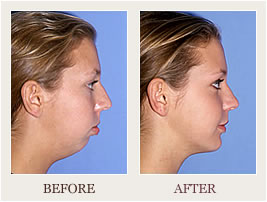Who Needs Corrective Jaw Surgery?

People who benefit from orthognathic surgery are those whose misaligned teeth and jaws create in an improper bite. Jaw growth is a gradual process, and the upper and lower jaws may occasionally grow at different rates. This can cause functional problems including difficulty with chewing, speaking, breathing, sleeping and overall oral health. A severe misalignment may affect a person’s appearance and produce psychological or emotional problems.
Jaw or head injuries and birth defects may also affect jaw alignment. Orthodontic braces usually correct bite problems caused by tooth misalignment, and orthognathic surgery corrects jaw misalignment.
Conditions That May Indicate the Need for Orthognathic Surgery:
- Difficulty chewing or biting food
- Difficulty swallowing
- Chronic jaw or jaw joint (TMJ) pain and headache
- Excessive wear on the teeth
- Open bite (space between the upper and lower teeth when the mouth is closed)
- Unbalanced facial appearance from the front or side
- Facial injury or birth defects
- Receding chin
- Protruding jaw
- Inability to make one’s lips meet without straining
- Chronic mouth breathing and dry mouth
- Sleep apnea (breathing problems when sleeping, including snoring)
Evaluating Your Need for Orthognathic Surgery
Dr. Joseph works closely with your dentist and orthodontist to determine whether orthognathic surgery is recommended, and which procedure is deemed appropriate.
Prior to surgery, your medical health history is reviewed, and a thorough examination – including facial measurements, photographs, X-rays, bite recordings and dental impressions — is completed.
Further Study About Corrective Jaw Surgery
- Evaluate Your Need for Corrective Jaw Surgery
- Learn More About the Corrective Jaw Surgery Process
- Benefits of having Corrective Jaw Surgery

